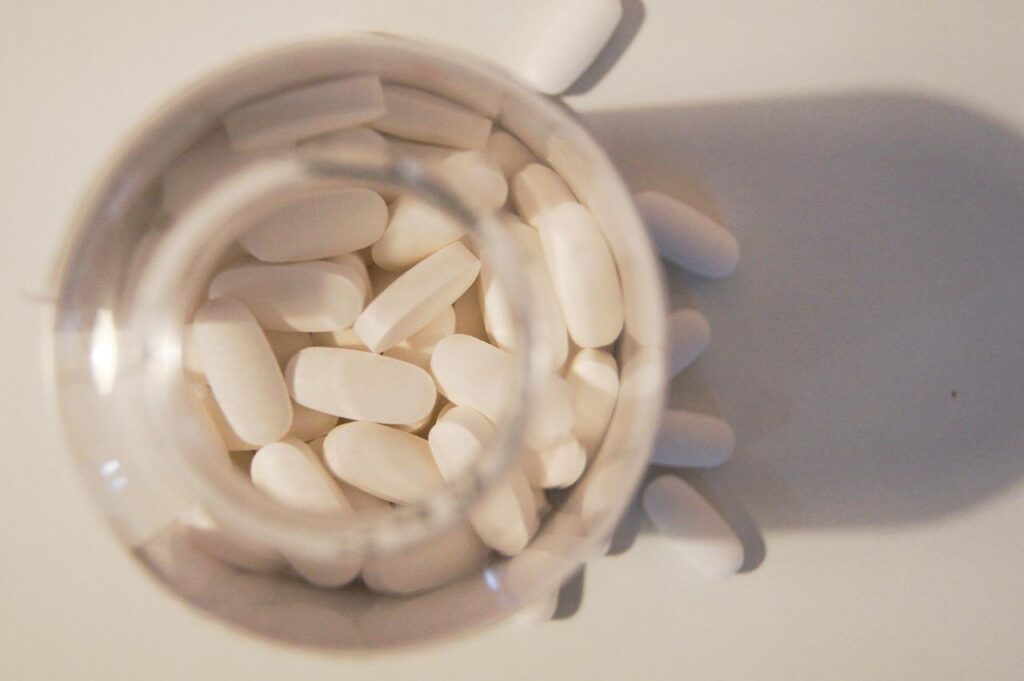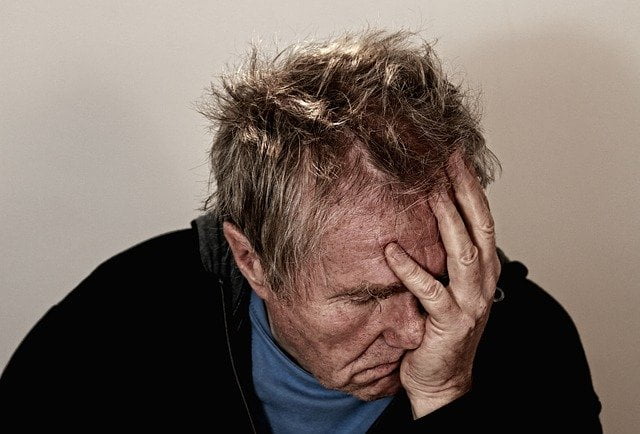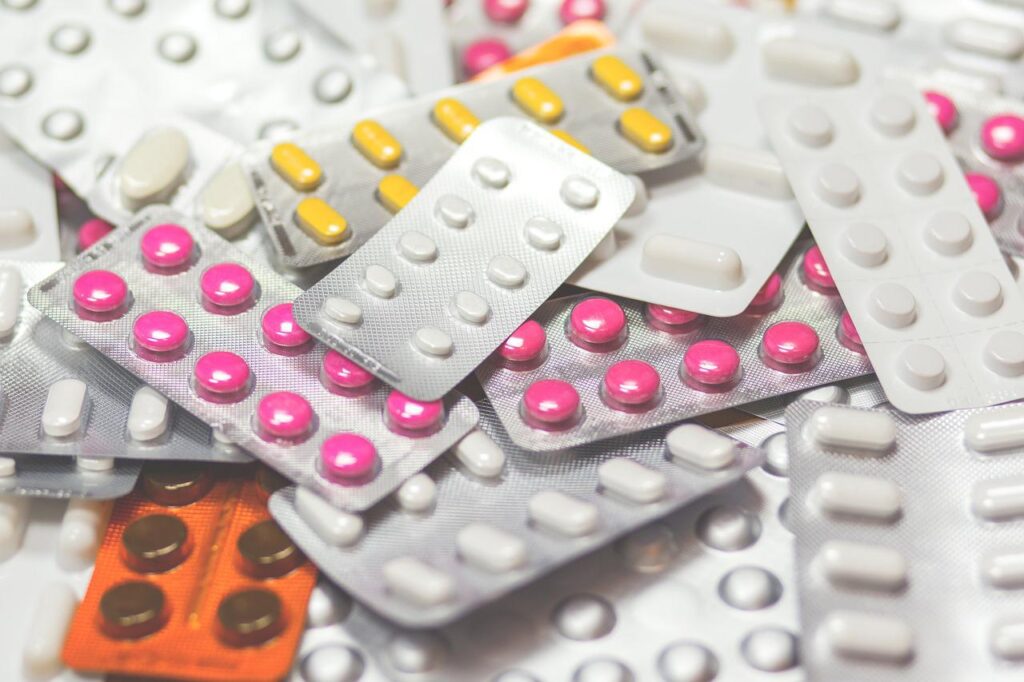- Home
- Addiction Detox
- Codeine Detox
Codeine Detox
When properly prescribed and managed, codeine can be a reasonably safe drug with helpful and beneficial effects.
However, as codeine belongs to the opiate family it has the potential to be powerfully addictive and lead to serious health consequences.
If you are struggling with codeine addiction, your first step should be a managed codeine detox during which you can rid your body of this substance.
Continue reading to learn more about codeine detox including risk factors, withdrawal symptoms and the safety of this process, and contact our team for advice and guidance about codeine addiction and detox.
What Is Codeine?

Codeine is a form of opioid that can be combined with other substances such as acetaminophen and promethazine to create various medications, including Tylenol and Fioricet.
It often takes the form of a small white pill, but can also be administered as a liquid medication.
Codeine is commonly prescribed in the form of cough syrup to treat persistent coughing.
It can also be used to relieve mild to moderate pain on a short-term basis and may be found in certain migraine medications.
The effects of codeine are fast, with this substance often taking effect within 30 minutes and lasting for up to 6 hours.
It is not recommended to give codeine to children, as it can result in slowed breathing which can be fatal in extreme cases.
It’s important that you only use codeine if you have a medical prescription.
You should also work out a withdrawal plan with your GP so that you can begin gradually reducing your intake of this drug over time, to lower the risk of experiencing withdrawal symptoms.
As mentioned above, codeine should only be taken on a short-term basis due to the addictive nature of this substance.
How Does Codeine Work?

Codeine is a form of opiate and as such, it works in a similar way to other opiates depending on the reason for use.
If you are prescribed codeine to help alleviate a persistent cough, this substance has the ability to decrease signals and activity in the section of the brain that causes coughing.
This can also reduce breathing effectiveness and can be dangerous, which is why it’s important to only take the prescribed amount of codeine.
If you are prescribed codeine to help with pain management, it can block the pain receptors that carry signals to the brain.
As a result, the pain is still present but your brain is temporarily unaware of this sensation.
Codeine can make you feel relaxed and drowsy, and this feeling can become addictive.
Some people mix codeine with other substances such as alcohol and valium, which can increase its dangers and addictive properties.
Street names for codeine include purple drank, Texas tea, lean and sizzurp depending on which substance it has been mixed with.
What Are The Signs And Symptoms Of A Codeine Addiction?

As codeine is a legal substance, it can be difficult to draw a line between normal use and addiction.
It is possible, and in fact extremely common, to become addicted to prescription medication.
The risk increases when someone obtains this substance without a medical reason.
The most common symptom of codeine addiction is frequent nausea, as ingesting this substance through cough syrup can cause this symptom.
If you are concerned about someone you know, keep an eye out for signs of nausea as well as the other symptoms listed below.
Common symptoms of a codeine addiction include:
- Frequent itching
- Feeling nauseous on a regular basis
- Drowsiness
- Lack of appetite
- Noticeable weight loss
- Constipation and stomach pain
- Constant mood swings
- Falling asleep frequently
- Slowed breathing

As well as the above symptoms, the affected person may also start to exhibit more general symptoms of addiction.
These include:
- Becoming withdrawn and isolated
- Acting evasive and secretive
- Lack of grooming and hygiene
- Falling behind at school or work
- Neglecting responsibilities
- Financial troubles such as debt
- Lying and/or stealing from others
- Getting in trouble with the police
If you or someone you know is showing signs of codeine addiction, call our team at Rehab Recovery on 0800 088 66 86 for immediate advice and guidance 24 hours a day.
What Happens During A Codeine Detox?

We understand that the idea of a codeine detox may be intimidating and overwhelming, so learning more about the process can help you to feel more confident about starting your recovery.
When you first attend a treatment centre for a codeine detox, you will be assessed by a trained medicine clinician who will create a personalised treatment programme for you.
Some people find that merely tapering off their codeine use over the course of a week is possible, while others prefer to switch to a less-addictive codeine substitute during this process to make the detox more comfortable.
During a codeine detox, you should undertake relaxing and restful activities to help your body heal from the effects of addiction, as well as focus on a healthy diet and gentle exercise.
Once you have completed the physical codeine detox, you will be encouraged to attend a course of counselling sessions to learn more about the factors that led to your addiction and develop healthy coping skills.
What Withdrawal Symptoms Can I Expect During Codeine Detox?

When you use codeine on a regular basis, your brain and body develop ways in which to function despite the presence of this substance.
This may include working harder by increasing the strain on various organs or simply functioning in a different way than usual.
If the codeine is suddenly taken away, it can take the brain and body a while to stop working in this way.
This results in various physical and psychological withdrawal symptoms as the body attempts to readjust to this new normal.
Physical withdrawal symptoms experienced during codeine detox include:
- Flu-like symptoms, including a fever and body chills
- Excessive sweating
- Frequent pains in the stomach
- Nausea and vomiting
- Yawning and fatigue
- Uncontrollable muscle twitching
- A runny nose
- Insomnia and nightmares
- Gastrointestinal problems
- Increased heart rate
- High blood pressure
- Feeling achy and rundown
- Headaches
- Lack of appetite

Psychological withdrawal symptoms experienced during codeine detox include:
- Feeling emotional and tearful
- Intense cravings for codeine
- Frequent mood swings
- Increased anxiety
- Depressive episodes
- Feeling agitated and irritable
The above withdrawal symptoms are not usually life-threatening on their own, however if not properly managed they can lead to serious conditions such as dehydration and an increased risk of relapse.
How Long Does Codeine Detox Take?

Most people will begin to experience codeine withdrawal symptoms within 12-24 hours, as this substance leaves the body extremely quickly.
If you have developed a high tolerance to codeine then you may experience these symptoms even sooner, as your body may have become accustomed to a steady supply of codeine.
These symptoms will likely continue for 3-5 days, building and then peaking on the 3rd or 5th day.
This can be an extremely uncomfortable process, but you can take comfort in the knowledge that it will eventually pass.
The majority of people will have completed the codeine detox after one week, and you should notice your withdrawal symptoms subsiding around this time.
However, it is possible to experience continued withdrawal symptoms for weeks or even months after the initial codeine detox.
This is known as post-acute withdrawal syndrome and is more common in people with existing mental health conditions or an extremely severe codeine addiction.
Are There Any Risk Factors That May Affect A Codeine Detox?

Not everyone will experience a codeine detox in the same way.
Some people may move smoothly through the process, experiencing minimal symptoms and a fairly straightforward recovery.
Others may struggle with severe symptoms, intense cravings and multiple relapses.
This is due to the various factors that can affect each individual person, from their overall health to the amount of codeine they have been taking.
Some of the most common risk factors that may affect a codeine detox include:
- The length of time you have been taking codeine
- How much codeine you take on a regular basis
- Any other physical or mental health conditions
- How often you use codeine
- The way you take codeine
- Whether you combine codeine with other substances
- Your weight, biological sex and overall health
The duration of the detox process, the severity of your withdrawal symptoms and your likelihood of relapse can all be affected by the above risk factors and should be taken into account when planning your treatment programme.
Is Codeine Detox Dangerous?

When performed under the care of experienced medical professionals, a codeine detox is a relatively safe process.
Many of the symptoms such as stomach pains and insomnia are simply unpleasant, rather than inherently dangerous.
However, if you attempt to detox from codeine alone then you are at risk of suffering from severe side effects.
This may include dehydration due to excessive sweating, vomiting and trouble eating or drinking, which can be life-threatening if not treated promptly.
Detoxing from codeine alone also increases the risk of relapse, which can lead to overdose if you take too much of this substance as it can suppress your ability to breathe.
Due to the reasons listed above, it is recommended that you detox from codeine at a specialised rehab clinic.
In addition to constant monitoring, medical staff can prescribe a range of medications that can help you feel more comfortable throughout the detox process.
In some cases, you may be able to undergo a home-based codeine detox in which you are monitored over the phone by a medical professional, but this is only recommended for mild cases of codeine addiction.
What Should I Ask My Doctor If I Am Prescribed Codeine?

If you have been prescribed codeine to treat a medical condition, it is important that you understand exactly what to expect.
Your doctor is trained to spot the signs of addiction while supporting and guiding you through the detox process.
It is recommended that you ask the following questions if you are prescribed codeine:
- Are there any non-addictive alternatives to codeine that may be suited to treating my condition?
- What are the signs of codeine addiction that I should look out for?
- What are the signs of codeine tolerance that I should look out for?
- What should I do when I want to stop taking codeine?
- Should I expect to experience withdrawal symptoms when I stop taking codeine?
- How long will it take for me to detox from codeine?
- What support can I find during the codeine detox process?
If you have any concerns, speak to your doctor who will be able to provide advice specifically tailored to your medical needs.
Where Can I Get Help For Codeine Detox And Withdrawal?

You do not have to go through the process of codeine detox alone – in fact, it is highly recommended that you seek help.
The most effective way to successfully detox and withdraw from codeine is at a rehab clinic that specialises in treating this addiction.
Depending on the severity of your dependency you may have the option to be treated as an inpatient or an outpatient, giving you the choice between living full-time at the facility or attending on a part-time basis while remaining at home.
You will benefit from constant medical monitoring during codeine detox, reducing your risk of experiencing complications such as dehydration or relapse.

Additionally, you will also be able to tackle the psychological issues behind your codeine addiction with a course of therapies administered once the detox process is complete.
You may wish to speak to your GP about the possibility of entering rehab for a codeine detox.
Alternatively, you can refer yourself to a private clinic or speak to our team at Rehab Recovery for free, no-commitment advice.


